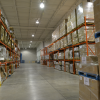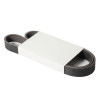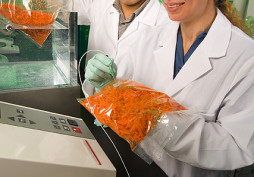7 Tips for Choosing the Right Co-Packing Partner
Posted By: Karl Wirtz
Posted On: 6th April ‘ 16
When looking for a co-packer, it’s important that you choose a strategic partner dedicated to working with you to help you grow your business. You need to be sure your co-packer has the facilities, equipment, credentials, and teams to meet your unique needs.
Review these seven tips to help you make the right decision when choosing your co-packing partner.
1. Compare the Services a Co-Packer Provides Against Your Needs
You should begin by assessing your needs. Co-packers offer a varying range of services, which is why it’s important to choose a co-packing partner whose services complement your internal capabilities:
- Do you need a turn-key partner, someone who can source supplies, provide warehousing solutions, and ship your products?
- What are your team’s strengths? If they’re sales and marketing experts, a turn-key co-packer might be more appropriate. If you have a handle on the supply chain and logistics, you might consider maintaining that expertise in-house.
2. Research the Co-Packing Company’s History and Reputation
It’s important to look into the co-packing companies you’re considering. Find out how long they’ve been in business and assess their levels of expertise:
- Ask around your network. Approach businesses like yours to find out if they’ve heard about or worked with co-packers experienced in your specific industry.
- Look into each co-packer’s leadership team. Do they have a variety and wealth of industry experience?
3. Confirm the Co-Packer’s Commitment to Quality and Safety
Research the quality and safety program the co-packer has put in place. Do they perform regular quality inspections?
Ask questions like:
- What are the employee safety policies and procedures?
- Do you have HACCP plans set up?
- Do they have segregated nut-free facilities?
- How often is your facility audited?
It’s important to work with a co-packer dedicated to making quality and safety the top priority.
4. Look into a Co-Packer’s Certifications
Depending on the types of products you need packaged, it’s crucial to make sure your co-packer’s facilities are fully certified, including:
- GFSI Compliance
- BRC, AIB, and HACCP Certifications
- Segregated Nut and Nut-Free Zones
Possessing up-to-date certifications is proof your co-packer has taken the necessary steps to develop reliable systems of quality control throughout its facility and nurture responsible behaviour among its team.
5. Take a Warehouse Tour
You need to make sure the facility has the equipment and teams in place to get the job done right. Take a tour so you can walk through the process from beginning to end, seeing how your products will be handled.
Ask questions like:
- Do the actual sanitary practices match the claims? You should look for good allergen management practices, the cleanliness of the machinery, and the staff’s attire.
- Are they attentive to general employee safety? Make sure that floors are clean and fire exits are clear.
- Is the warehouse well maintained and organized? Ensure storage racks are organized, stray skids have a designated location, and right temperatures are maintained for the right environments.
- Do employees enjoy their jobs? You should be able to engage with employees to ask how long they’ve been with the company and what they enjoy about working for it.
A clean, well-maintained co-packing facility staffed by happy, productive team members will increase a co-packer’s overall effectiveness and lead to better results for you.
6. Make Sure You Can Communicate Openly with Your Co-Packer
In choosing your co-packer, ensure you’ll be able to work with them to collaboratively solve any problems that arise. In general, a more transparent co-packer will be a more trustworthy co-packing partner.
7. Ask for Referrals from the Co-Packer
You should read testimonials to find out what their customers are really saying. Many co-packers will make testimonials available on their websites.
Don’t hesitate to ask a co-packer for some clients you can contact, especially those with needs similar to yours. You should ask those customers about their experience working with the co-packer, especially when it comes to communication, decision making, and problem resolution.
Following these steps will help you make the right decision in choosing a co-packer, ensuring you work with a partner dedicated to helping you scale your business and boost sales.
At WG, our experts can handle co-packaging projects according to your unique needs. We have more than 135,000 sq ft of warehouse space, certified facilities, temperature-controlled environments, nut-free facilities, and more. Contact us today to discuss your co-packing needs!
Read more from WG:
- What is a Co-Packer?
- 6 Benefits of Working with a Co-Packer
- Finding a Qualified Food Co-Packer: Why GFSI Certification Is Critical
- Congratulations to David John Vongalu, Winner of This Year’s WG Leadership Award at Sheridan College’s Pilon School of Business - June 23, 2017
- 4 Future-Forward Co-Packing Trends - May 2, 2017
- WG Connects with Companies Eager to Grow in North America at the International Sweet and Snack Fair in Germany - February 23, 2017


















